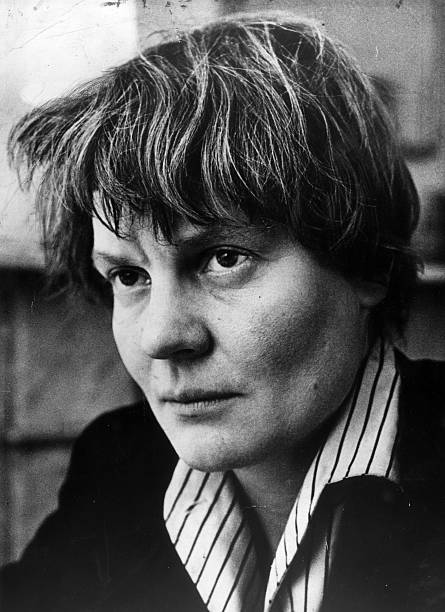
Your complimentary articles
You’ve read one of your four complimentary articles for this month.
You can read four articles free per month. To have complete access to the thousands of philosophy articles on this site, please
Philosophical Haiku
Iris Murdoch (1919-1999)
by Terence Green
Perceive but not touch
An abstract reality:
God become the Good

Perhaps better known as a philosophical novelist than as a philosopher, in her novels Iris Murdoch explored in intense depth the inner lives of her vast panoply of characters. In this she was an heir to the literary tradition that includes Dostoyevsky, Tolstoy, and Proust. Murdoch also spent fifteen years teaching philosophy at Oxford University.
She was born in Phibsborough, Dublin, moving to London with her family when just a few weeks old. As a student at Oxford, she met Ludwig Wittgenstein, discovered Plato, and did what many people did back then – joined the Communist Party. This proved problematic when in 1946 she won a scholarship to Vassar College in Poughkeepsie, New York: sensing in her a potential commie agitator, the Americans denied her a visa. She was later to visit the United States on numerous occasions, but always had to obtain a waiver from the authorities – once a commie, always a commie, as they liked to say. In fact, in later life, Murdoch’s philosophy was underpinned by a commitment to Plato rather than Marx, and to Plato’s belief in the existence of ideal Forms – abstract perfect archetypes of every flawed entity we perceive in the world. Murdoch believed that Goodness, or the Good, had an actual existence as one of these Forms, and that we are to live life as pilgrims who seek to move ever closer to it. As we do so, like Plato’s cave-dwellers emerging blinking into the sunlight, we move steadily away from a life of illusion, to a life of reality or truth. To Murdoch’s mind, this journey brings us not only nearer to the Good, but nearer also to God, since for her, goodness was best understood as a manifestation of God in the world.
Having epitomised the life of the mind, and having believed that we ultimately come to know reality through the mind, Murdoch suffered the ignominy of having her mind taken from her: in her mid-70s, Alzheimer’s began its pitiless work of erasure. She died just a few years later.
© Terence Green 2018
Terence is a writer, historian, and lecturer, and lives with his wife and their dog in Paekakariki, NZ. hardlysurprised.blogspot.co.nz









